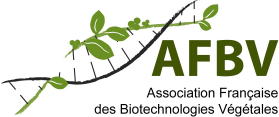Following the European Court of Justice (ECJ) decision of 25 July 2018 relating to genome-edited plants, many scientists, Member States, industrial organizations, trading partners and other stakeholders have called for the EU to adapt its GMO legislation (Directive 2001/18/EC and associated regulations) to reflect scientific knowledge and technical progress achieved since its implementation in 2001.
In this spirit, AFBV (Association française des biotechnologies végétales) and WGG (Wissenschaftlerkreis Grüne Genechnik), a circle of German scientists interested in green biotechnologies, propose that the European Union quickly adopt certain changes to the GMO Directive enabling the essential implementation of genome editing in plants, to achieve important sustainable development goals for European agriculture, including a clean environment, resilience to climate changes, the protection of biodiversity, and the satisfaction of consumer needs (see full declaration appended hereto).
Concretely, after mutual consultation AFBV and WGG propose a classification of different categories of products resulting from genome editing, in the context of Directive 2001/18/EC.
- A new category of products (IA2) is proposed to be added to Annex I A, Part 2: organisms having edited sequences corresponding to sequences known to occur in their natural gene pool. This category is considered excluded from the GMO definition and therefore falls under regulations applicable to conventional breeding, it being understood that appropriate information regarding such products would be made available to the relevant competent authority at the time of their registration, before commercialization.
- Three other categories of products are proposed to be added to Annex I B: (IB1) organisms having sequences that have been edited to correspond to sequences that are known to exist within the plant kingdom, (IB2) organisms having edited sequences that could have been obtained by random mutagenesis, and (IB3) organisms having undergone the insertion of sequences known to exist within the natural gene pool of the species. These three categories of products are considered GMOs but would be exempted from the regulatory obligations of GMOs in the same way as today organisms resulting from random mutagenesis, and, accordingly, would be subject to regulations applicable to traditional breeding. In addition, a validation procedure would be put in place whereby, upon request of a notifier, the competent authority of a member state would validate conformity of a target organism with the required criteria to meet the new exemptions, such procedure to be completed before first deliberate release.
Finally, we propose confirmation of the excluded status of products known as negative segregants by including them as a specific category (IA1) in the Annex I A (see complete statement attached).
These safeguard measures for genome editing in the EU are increasingly urgent as several countries have adopted legislation that goes in the same direction.
A télécharger









